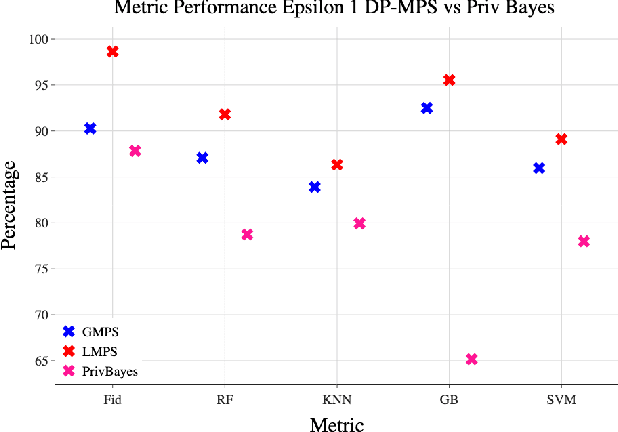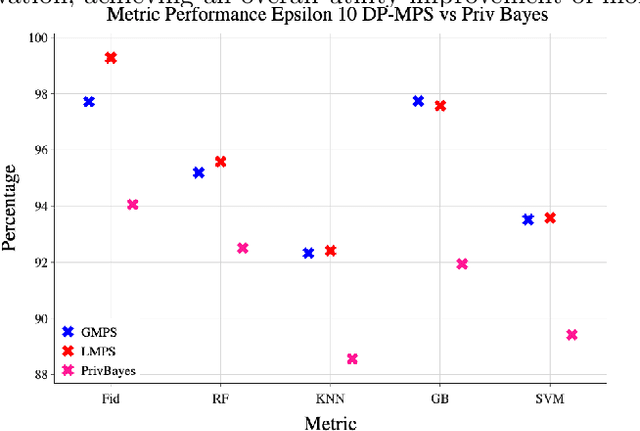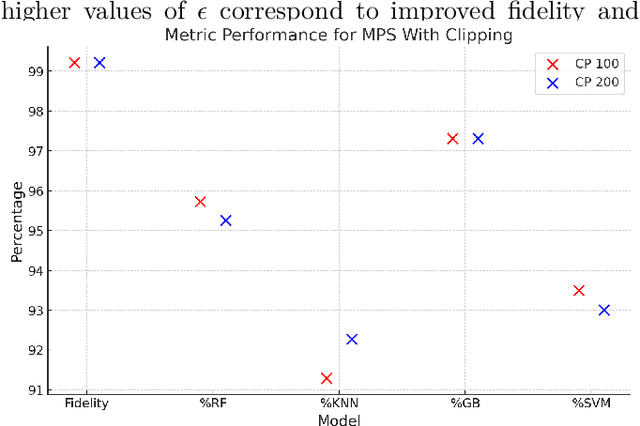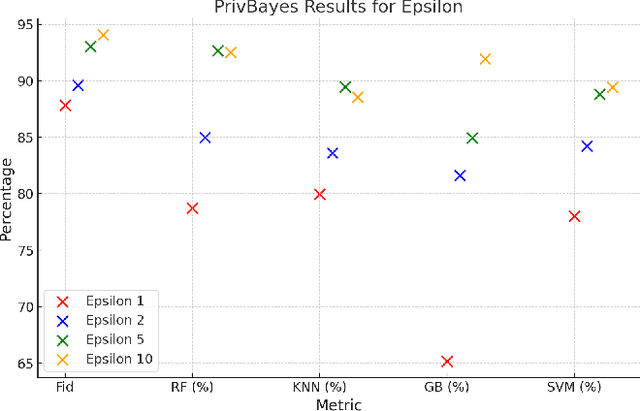Manuel Radons
Synthetic Data Generation and Differential Privacy using Tensor Networks' Matrix Product States (MPS)
Aug 08, 2025



Abstract:Synthetic data generation is a key technique in modern artificial intelligence, addressing data scarcity, privacy constraints, and the need for diverse datasets in training robust models. In this work, we propose a method for generating privacy-preserving high-quality synthetic tabular data using Tensor Networks, specifically Matrix Product States (MPS). We benchmark the MPS-based generative model against state-of-the-art models such as CTGAN, VAE, and PrivBayes, focusing on both fidelity and privacy-preserving capabilities. To ensure differential privacy (DP), we integrate noise injection and gradient clipping during training, enabling privacy guarantees via R\'enyi Differential Privacy accounting. Across multiple metrics analyzing data fidelity and downstream machine learning task performance, our results show that MPS outperforms classical models, particularly under strict privacy constraints. This work highlights MPS as a promising tool for privacy-aware synthetic data generation. By combining the expressive power of tensor network representations with formal privacy mechanisms, the proposed approach offers an interpretable and scalable alternative for secure data sharing. Its structured design facilitates integration into sensitive domains where both data quality and confidentiality are critical.
On Neural Quantum Support Vector Machines
Aug 16, 2023Abstract:In \cite{simon2023algorithms} we introduced four algorithms for the training of neural support vector machines (NSVMs) and demonstrated their feasibility. In this note we introduce neural quantum support vector machines, that is, NSVMs with a quantum kernel, and extend our results to this setting.
Algorithms for the Training of Neural Support Vector Machines
Aug 14, 2023Abstract:Neural support vector machines (NSVMs) allow for the incorporation of domain knowledge in the design of the model architecture. In this article we introduce a set of training algorithms for NSVMs that leverage the Pegasos algorithm and provide a proof of concept by solving a set of standard machine learning tasks.
 Add to Chrome
Add to Chrome Add to Firefox
Add to Firefox Add to Edge
Add to Edge